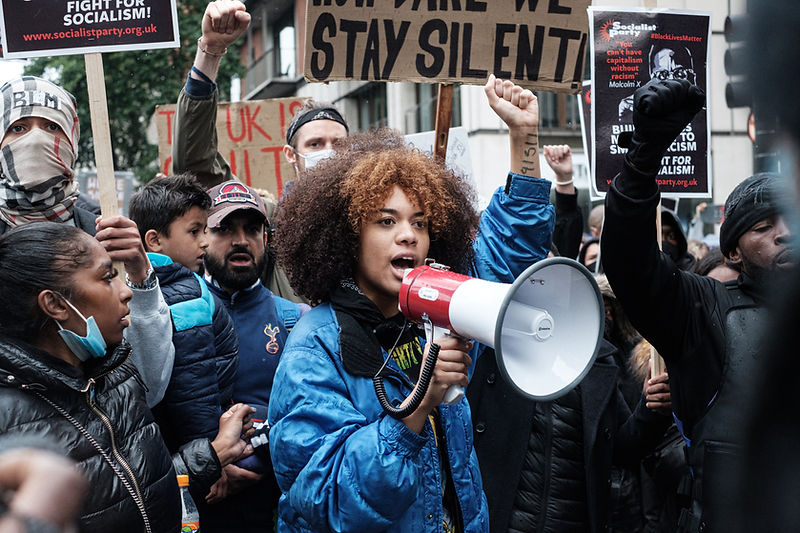

Sociology
Curriculum
Introduction
Sociologists are interested in why society works in the way it does and the extent to which
our behaviour, and even opportunities, can be shaped by our social class, age, gender and
ethnicity. We question the society in which we live in order to understand the relationship
between individuals and institutions such as the Education System and Health Service,
Government, the Welfare State, Religion and the Mass Media. We consider whether the
ways in which societies are run are fair for all individuals or whether factors such as
class, family background, gender or ethnicity may advantage some while disadvantaging
others. We focus on the UK and look back over the last 100 years to see what changes have
happened and how this has impacted on society, either positively or negatively.
L.Bird
Subject Performance Leader
Key Skills & Understanding:
critical thinking & analysis · ethics · testing hypothesis · historical context · profiling
let's take a look...
12&13
YEARS
Who is it for?
Sociology is for people who are interested in the way people interact and organise themselves in communities, cultures and societies and the effect that this has on them and others.
People who like Sociology enjoy having a debate and discussing all sides to an argument, so they are good at reasoning from different viewpoints. However, Sociology isn’t just about having opinions. Sociologists also conduct research; they collect and analyse evidence to support or challenge theories about society.
To study A-Level Sociology you will need to have GCSE Maths level 4 and in GCSE English a Grade 5 is preferred. A grade 4 may be accepted following discussions with the SPL for English / Head of VI Form regarding suitability. The course involves writing essays and using some official data from the government/ sociological research studies.
Sociology goes well with all subjects but especially Psychology, History, Geography, Health and Social Care, and English.
A Sociology A-Level can contribute to future employment in Education, Social Services, Human Resources, Civil Service, Police, the Justice System and many more areas! It tells Universities and potential employers that you have an enquiring, reflective and open mind and you are interested in people, which is very important in today’s service industry dominated world.
What and how will I study?
The A-Level course is very much an overview of key areas within Sociology. The AS course covers a few areas to give you a flavour of the subject and the A level course both extends
this and focuses in more detail. The course content given below briefly describes some of what will be studied in each topic.
Lessons will involve teacher presentations, pair and small group work and lots of interaction such as viewing relevant video clips, keeping up-to-date with the news, and a lot of lively discussion on topical issues in history, as well as in current affairs.
Lessons will also include debate, teacher-led activities and lots of exam focus to develop your exam technique and get you used to the AQA exam terminology. We also consider contemporary events in society, such as the Covid-19 pandemic, the death of Queen Elizabeth II, and the Black Lives Matter movement, so keeping up to date with the News is really important.
Year 12: Topics
Education:
You will study the Education System and how it has changed and its influence:
For example, we will look at the reasons girls may do better at GCSE than boys, teacher/pupil relationships and pupil subcultures. We will investigate how Sociologists have collected and analysed data concerning schools and the Education System.
Theories and Methods:
In this topic we will look at different research methods that sociologists use in their study of society. These include experiments, observations, interviews, questionnaires, official statistics and documents. We will consider the pros and cons of each method and apply it to examples within the Education topic. In Year 13 we also cover different perspectives on society and look at whether Sociology is a science.
Families and Households:
Families and Households and how they are changing. For example, we will look at changing patterns of birth rate, death rate, migration, marriage, divorce and cohabitation and how roles within the family are changing. We will also discuss how Sociologists conduct their research and issues with this as well as considering different views on these changes in society in the UK.
Year 13: Topics
Beliefs in Society:
You will study Beliefs in Society. For example, we will consider how people’s religious beliefs impact on their lives and how this is changing over time. Are people religious now than in the past? What sort of beliefs and organisations, if any, are replacing traditional religion? What role does religion play in social change? Is science replacing religion?
Research methods:
How do psychologists collect and interpret data
about humans and what are the issues and ethical problems involved?
Some maths and statistical tests as well as how to structure a scientific
report.
Crime and Deviance:
In this topic we will discuss different views as to what causes crime, how crime can be prevented, victim support, and whether rehabilitation can work. We will look again in more depth at how Sociologists gather data to develop our understanding of crime.
We also consider social class, ethnic, and gender differences in crime.
How will I be assessed?
Paper 1:
A 2 hour exam. Multiple choice, short answers and extended writing 33.3 % of A level.
Paper 3:
A 2 hour exam. Multiple choice, short answers and extended writing 33.3 % of A level.
Paper 2:
A 2 hour exam. Multiple choice, short answers and extended writing 33.3 % of A level.
For more information on this course throughout all key stages please contact Miss L Bird




